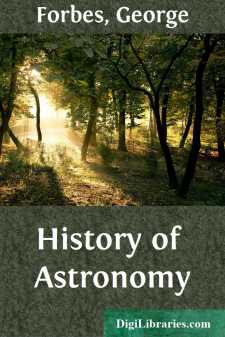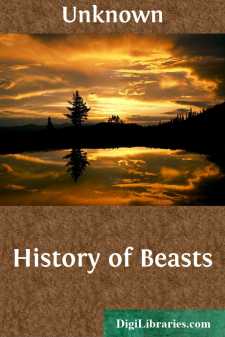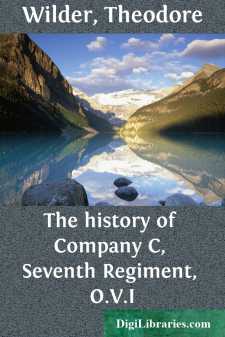Categories
- Antiques & Collectibles 13
- Architecture 36
- Art 48
- Bibles 22
- Biography & Autobiography 813
- Body, Mind & Spirit 142
- Business & Economics 28
- Children's Books 15
- Children's Fiction 12
- Computers 4
- Cooking 94
- Crafts & Hobbies 4
- Drama 346
- Education 46
- Family & Relationships 57
- Fiction 11829
- Games 19
- Gardening 17
- Health & Fitness 34
- History 1377
- House & Home 1
- Humor 147
- Juvenile Fiction 1873
- Juvenile Nonfiction 202
- Language Arts & Disciplines 88
- Law 16
- Literary Collections 686
- Literary Criticism 179
- Mathematics 13
- Medical 41
- Music 40
- Nature 179
- Non-Classifiable 1768
- Performing Arts 7
- Periodicals 1453
- Philosophy 64
- Photography 2
- Poetry 896
- Political Science 203
- Psychology 42
- Reference 154
- Religion 513
- Science 126
- Self-Help 84
- Social Science 81
- Sports & Recreation 34
- Study Aids 3
- Technology & Engineering 59
- Transportation 23
- Travel 463
- True Crime 29
Sort by:
CHAPTER I PREHISTORIC ARCHÆOLOGY Prehistoric Remains.—One often finds buried in the earth, weapons, implements, human skeletons, débris of every kind left by men of whom we have no direct knowledge. These are dug up by the thousand in all the provinces of France, in Switzerland, in England, in all Europe; they are found even in Asia and Africa. It is probable that they exist in all parts of the...
more...
by:
George Forbes
1. PRIMITIVE ASTRONOMY AND ASTROLOGY. The growth of intelligence in the human race has its counterpart in that of the individual, especially in the earliest stages. Intellectual activity and the development of reasoning powers are in both cases based upon the accumulation of experiences, and on the comparison, classification, arrangement, and nomenclature of these experiences. During the infancy of...
more...
CHAPTER I COLONIAL LITERATURE RELATION TO ENGLISH LITERATURE.—The literature produced in that part of America known as the United States did not begin as an independent literature. The early colonists were Englishmen who brought with them their own language, books, and modes of thought. England had a world-famous literature before her sons established a permanent settlement across the Atlantic....
more...
by:
Wolfram Eberhard
Chapter One PREHISTORY 1 Sources for the earliest history Until recently we were dependent for the beginnings of Chinese history on the written Chinese tradition. According to these sources China's history began either about 4000 B.C. or about 2700 B.C. with a succession of wise emperors who "invented" the elements of a civilization, such as clothing, the preparation of food, marriage, and...
more...
by:
Wolfram Eberhard
Chapter One 1 Sources for the earliest history Until recently we were dependent for the beginnings of Chinese history on the written Chinese tradition. According to these sources China's history began either about 4000 B.C. or about 2700 B.C. with a succession of wise emperors who "invented" the elements of a civilization, such as clothing, the preparation of food, marriage, and a state...
more...
by:
Unknown
cat is a very useful do animal. She destroys s and mice, which otherwise would do much injury. God has formed her to live among men. How soft her fur is! How quietly she lies and purs when she is treated kindly! How patiently she will sit, for many hours together, and watch for her prey! It would be well if little boys and girls would sit as still while they are learning their lessons. THE DOG. The Dog...
more...
by:
Ernest Favenc
Part I Rumours of the existence of a Southern Continent in the Sixteenth Century—JAVE and JAVE LA GRANDE—Authentic Discoveries and visits of the early Navigators—Torres sails between New Guinea and Terra Australis—Voyage of the DUYFHEN in 1606—Dirk Hartog on the West Coast, his inscribed plate—Restored by Vlaming—Afterwards by Hamelin—Nuyts on the South Coast—Wreck of the BATAVIA on...
more...
by:
Humphry Ward
CHAPTER I 'Tak your hat, Louie! Yo're allus leavin summat behind yer.' 'David, yo go for 't,' said the child addressed to a boy by her side, nodding her head insolently towards the speaker, a tall and bony woman, who stood on the steps the children had just descended, holding out a battered hat. 'Yo're a careless thing, Louie,' said the boy, but he went back...
more...
by:
Neil Buchanan
THE AUTHOR'S PREFACE TO THE ENGLISH EDITION. No theological book can obtain a place in the literature of the world unless it can be read both in German and in English. These two languages combined have taken the place of Latin in the sphere of Christian Science. I am therefore greatly pleased to learn that my "History of Dogma" has been translated into English, and I offer my warmest...
more...
by:
Theodore Wilder
The History of Company C is properly connected with the history of Oberlin College, the Alma Mater of its organization. The majority of its members were proud to be known as the exponents of the generous, Christian principles, there so fearlessly uttered and so zealously inculcated. The founders of Oberlin were pledged to the general law of benevolence. All known forms of virtue were cheerfully...
more...






![A history of China., [3d ed. rev. and enl.]](https://digilibraries-com.s3.eu-central-1.amazonaws.com/covers/2eac5372-aeee-46a0-90e7-67e24bd8e549.jpg)




